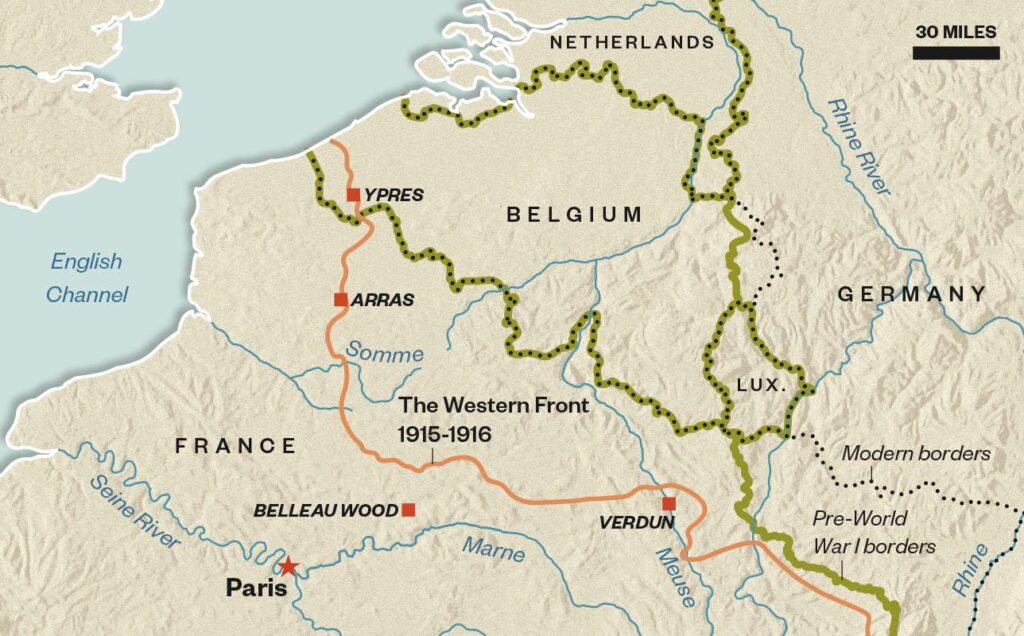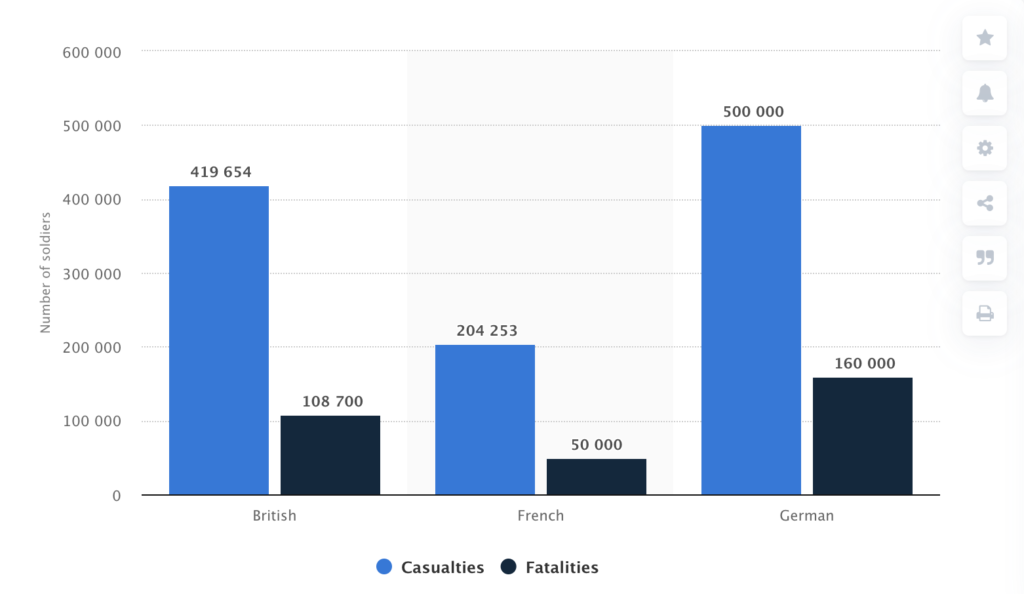- Schlieffen Plan
- Trench Warfare
- Battle of the Somme
- War in the Air
- Economic and Human Resources
- Role of Women
- USA Entry into the War
- Entente Won/ Central Powers Lost
The Schlieffen Plan
Each country plans ahead for a future war. Before the First World War, France planned for a possible German invasion, Austria-Hungary planned for a war against Russia, (and vice-versa), and Britain relied on its navy for both offensive or defensive operations. After Russia and France signed an alliance in 1894, Germany faced a possible future war from both sides. How would Germany fight both in the east and west at the same time?
The Schlieffen Plan was first devised in 1905 by the commander of the then German forces, General von Schlieffen. The war plans of other countries can be found on these two links: World War 1.com and First World War.com. However, the German plan is the most famous. Can you think why?
Schlieffen Plan – Key questions
- Why did it fail?
- Were there alternative plans?
- How did this war plan affect Germany’s foreign policy?
The Western Front in 1914 – requires flash player
- The Russian railways had improved because of their failure in the Russo-Japanese War of 1904-5. The Tsar decided that Russian ambitions in Asia should be halted and he should focus on the west. As a result, the Russian armies were ready for war in under four weeks rather than six.
- Von Schlieffen was not in charge when the war began. His successor, von Moltke, altered the plans.
- The plan expected Germany to fight Belgium and France in the west. It did not expect to take on Britain too. This involvement slowed down the German advance.
- The Belgian Army fought harder than expected. The Schlieffen Plan had expected a quick surrender by France.
One of the key British historians, Max Hastings, argues that the Schlieffen Plan was never going to work. He argues that the weapons had improved but not the infrastructure to move them long distances. He also criticised the plan because it did not take into account the size of the armies. The French Army was much larger in 1914 than in 1905 so could afford to take more casualties before surrendering. This would delay the Schlieffen Plan and lead to its failure.
- Can Germany still win after the failure of the Schlieffen Plan?
- What does she need to do to defeat the Entente powers?
Trench Warfare

Battle of the Somme
The Battle of the Somme is the most infamous of the First World War for Britain and its former empire. It suffered its worst day in military history and is argued over today about the purpose of fighting such a battle. The battle itself is also a good case study to analyse the use of weapons and resources. It could also be used to study the strategic errors of both sides.
The battle was fought to relieve pressure on Verdun as the German and French forces were fighting a titanic struggle in the area.

This proved successful but the casualty figures for the Entente powers were extremely high.

Arguing that the ‘Somme’ was a success therefore is not entirely accepted. The Entente powers gained just over eleven kilometres in territory but at the expense of 620 000 casualties.
However, the following quote is from a piece by Duff Cooper. It is still debated today if the German officer actually said it.

One of the senior British First World War historians, Gary Sheffield, delivers a lecture about the Battle of the Somme below. His perspective is worth using in any essay on the practices of war.
The Battle of the Somme is further useful for studying the tank, it was first used on September 1916.
War in the Air
Economic and human resources
Total Mobilisation and Special Measures
Role of Women
USA Entry into the War
USA and how they influenced the convoy system
Entente Won/ Central Powers Lost
- Can you argue the Entente won when Russia lost?
- If Britain suffered so much financially from the war, did she really win?
How did the Entente manage to win the Great War?
Historiography of the First World War
Historiography of the First World War
Why the Allies won, by Stephen Broadberry
In the article above, Stephen Broadberry argues that the quantity and quality of Allied resources was the determining factor in them winning the First World War. The Triple Entente had better economies than the Central Powers, only Germany a leading power for the latter, so was able to outproduce and with better quality goods.
Gary Sheffield argues that the Allies had a strategy that won the war. Watch the following video to learn more.
Other Resources
